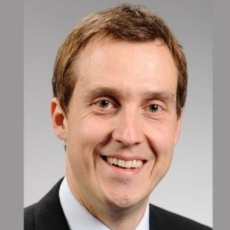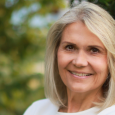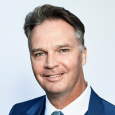Given your diverse portfolio, how relevant is the mining sector for the overall business of AFRY?
AFRY is separated into six divisions, and mining is part of the process industries division, where we have been traditionally the global leaders in the pulp & paper industry that has lately been suffering from low growth in other products than packaging and tissue. AFRY has actually worked within the mining and metals sector for decades, but as of 15 years ago we decided to evolve from local projects or OpEx services into CAPEX opportunities, implementing projects with EPCM method. As we made this step, mining turned into a sector of interest within our portfolio, and we continue to grow it as we expand our operations. Alongside with Chemicals and Biorefining, Mining and Metals is currently one of the three supporting pillars of AFRY’s Process Industries division operations
Your approach is marked by sustainability commitments across all the areas that you cover - how would you define sustainable mining?
Sustainability is an essential part of all engineering work across all our projects and daily activities.

Sustainable mining entails using energy efficient technologies that consume least energy and create the least byproducts. In terms of overall sustainability of the mining and metallurgical industry, the whole lifecycle of materials should be considered.
Certain battery metals such as copper, lithium, cobalt or nickel demand a lot of resources in production however, they on the other hand enable the green transition in transportation with dramatically reduced overall CO2-emissions.
How would you assess the mining industry's appetite to make use of modern technologies?
AFRY experts are constantly following the technological developments globally so that we can propose the most optimal solutions to our end-clients. Given that the most modern solutions are often advantageous from an operating cost perspective, mining companies are eager to integrate them in their daily operations. Since projects are optimized in terms of OpEx, the propensity towards efficient new technologies comes as a natural choice. Contrary to the widespread public opinion regarding their high degree of traditionalism, many mining companies actually employ electric solutions, such as the e-trucks used for their open pit projects, for example.
When it comes to geographies, which markets show the most demand for AFRY's products and services?
AFRY is traditionally focused on the Nordic countries, so Europe is a primary market for us. However, we also have a strong presence in South America, especially in Brazil, where we have a team of 1,000 actively working on projects, and little by little, through the acquisition of KSH Solutions, we begin to have a stronger foothold in the USA and Canada. Prompted by the nickel focus, AFRY is also present in South-East Asia, where we grow both organically but also look for potential partnerships with technology vendors.
Talent seems to be a common challenge across many industries worldwide. How is AFRY perceiving and tackling this issue?
We are aware that the workforce is a real challenge in today's markets, but so far, we have been very fortunate in attracting talent at AFRY. Thanks to our Northern European and Brazilian links, we have access to two amazing talent pools, which are globally renowned for their effervescent activity. The local mining and metallurgical universities are a net advantage and thanks to our technology independent profile, both R&D professionals and university students find our company as one of the most interesting career opportunities out there. In addition, our access to the latest innovations, and the excellent cooperation and connection we have with powerful Nordic technology vendors also play an important role in the success we have had thus far. However, if we were to list one challenge that we bumped into recently, we would probably mention the gradually declining investment environment that ensued in Brazil after the recent elections.
What are the objectives you are pursuing with priority going forward?
As we evolve, we will concentrate on keeping a healthy proportion between the CapEx services and the OpEX services so that we still serve our old clients but also leave enough room to support new junior mining companies. We will mainly provide help with development projects and green field investment, starting with various feasibility studies and proceeding into implementation projects. Given my industry background, I am extremely enthusiastic about the mining and metallurgical industry perspective, and going forward, I see the same degree of excitement within the entire company.






